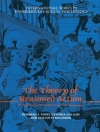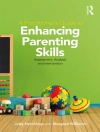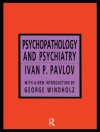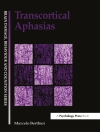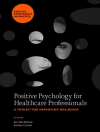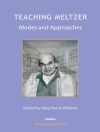The majority of music therapy work with children takes place in schools. This book documents the wealth and diversity of work that music therapists are doing in educational settings across the UK. It shows how, in recent years, music therapy has changed and grown as a profession, and it provides an insight into the trends that are emerging in this area in the 21st century.
Collating the experiences of a range of music therapists from both mainstream and special education backgrounds, Music Therapy in Schools explains the procedures, challenges and benefits of using music therapy in an educational context. These music therapists have worked with children of all ages and abilities from pre-school toddlers in nursery schools to teenagers preparing for further education, and address specific issues and disabilities including working with children with emotional and behavioural problems, and autistic spectrum disorders.
This book will be essential reading for music therapists, music therapy students and educational professionals.
Inhoudsopgave
Introduction. Amelia Oldfield. 1.Music Therapy within a Children’s Centre. Clare Rosscornes and Emma Davies. 2. ‘Open Doors, Open Minds, Open Music; The Development of a Music Therapy Service in an Assessment Nursery. Nicolette O’Neill. 3. Nordoff-Robbins Music Therapy with 1-3 year olds in a Nursery School Setting, Supporting Music Therapy Students. Chris Achenbach. 4. Multiple Views of Music Therapy. Ann Bruce and Suzie High. 5. The School Challenge; Combining Music Teaching with Music Therapy. Jan Hall. 6. Music Therapy and the Expression of Anger and Aggression: Working with Aggressive Behaviour in Children aged 5-9 who Risk Mainstream School Exclusion. Jane Brackley. 7. Music Therapy in a Special School; Investigating the Role of Imitation and Reflection in the Interaction between Music Therapist and Child. Jo Tomlinson. 8. The Development of a Community-Based Music Therapy Service in York and N. Yorkshire with Charitable Funding by ‘Music, My Voice’. Angela Harrison. 9. Music Therapy in Interface Schools in Belfast; A Creative Response to Cumulative Trauma. Karen Diamond. 10. Music Therapy in a Special School for Children with Autistic Spectrum Disorders Focusing Particularly on the Use of the Double Bass. Ian.S.Mc Teir. 11. ‘How Can I Consider Letting my Child Go to School when I Spend all my Time Trying to Keep him Alive?’ Links between Music Therapy Services in Schools and a Children’s Hospice; Supporting Healthy Attachment and Separation and Helping Facilitate Integration of the Sick and Well Child. Orla Casey. 12. Psychodynamically Informed Music Therapy Groups for Teenagers with Severe Special Needs Working Jointly with Teaching Assistants. John Strange. 13. ‘Yeah I’ll Do Music!’ Working with Secondary Aged Students who Have Complex Emotional and Behavioural Difficulties. Philippa Derrington.
Over de auteur
Philippa Derrington has been working as a music therapist with young people in mainstream and special school settings in Cambridgeshire for the past 10 years. She is currently involved in a major research investigation evaluating the effects of music therapy for children at risk of exclusion.


